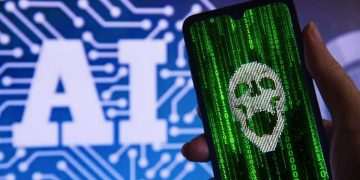The tokenization forms a part of the digitalization. With this, different finance products can be depicted digitally. This was not always the case. In the past, interests were only issued in paper and with a broker or intermediary. The tokenization works automatically, so that a broker isn’t needed any more. But what else is possible with the help of the tokenization? What can we expect in the future?
That’s how it works
The term tokenization is mainly used in connection with regulated finance products, often also in context with Real World Assets (RWA). With the tokenization, interests are issued in form of blockchain tokens. It is possible for every investor to hold their interests in their crypto wallet, in form of security tokens. In comparison to utility tokens, which are used in cases of NFTs for example, security tokens are not manufactured that easy. The reason for that is the regulation of the revenue. In general, a tokenization project corresponds to a classic finance instrument. They also underlie the same rules. The new thing about it is the blockchain technology, which enables a new form of the representation. Trading and fungibilty is simplified by that.

When a company wants to expand their business and collects money for that, the tokenization is able to simplify this process. First, it has to be defined how much money is collected and which form of tokenization should be used. For example, interests at the company can be surrendered. The possibilities are big. Sometimes a company looks for help in a platform like Intokia. These platforms have a lot of experience and are able to handle such tokenization processes professionally. After the legal requirements are clarified, the tokens can be sold to investors on online platforms. The disbursement of dividends and the like happens either on the blockchain or as a classic bank remittance.
Tokenization and DeFi
Decentralized finance (DeFi) divides an effective offer, e.g. with the decentralized trading. With DeFi, security tokens can be united, namely without loss of function like necessary KYC processes. For this there is a special KYC-NFT which allows the trading of security tokens on decentralized stock exchanges. Hereby, the editor is always informed who owns the tokens at the moment. The security tokens are sent to the wallet of the investor. This wallet can be connected with an application which knows who the owner is and what tokens he owns. This leads to a new form of interaction with the investors for online companies. Every investor can receive special advantages if he invests a high amount of money. For example, if one invests 50,000 GBP in a hotel, he can get free entry to the spa area lifetime.
Potential for companies and properties
Companies which have capital demand because of an expansion can use the tokenization. With this, it is possible to take money from more than one investor at the same time. Also, a notary isn’t needed any more. The accepting of the money happens automatically. The investors get the tokens either from the company or from a tokenization platform. Different forms of finance products are possible like interests, equities, participation rights or bonds with fixed or variable rates.
Also for the property market the tokenization provides enormous potential. A property can be sold not only to one person, but to more persons at the same time. When for example the residents of a block of flats want to buy the property, everyone has the opportunity to get a fraction of it. These parts are then represented by blockchain tokens. The revenues without the administration costs are distributed normally annual. Basically, also a payout quarterly, monthly or daily is manageable.
Conclusion
Still, the tokenization is at the beginning of their possibilities. In the future, there will be more progress in this context. The statutory circumstances are already existing. Daily, new projects are starting in this area. All in all, everything can potentially be tokenized. This can be share of the company, products, immaterial things like patents and art or other valuable items. It will still take some time till the technology is fully embraced by everyone, but it is likely that it will replace the traditional equity trading in the future.
Author: Maximilian Schmidt is CEO of the CPI Technologies GmbH. The company is specialized in software development in the areas artificial intelligence, blockchain and digital product development. https://cpitech.io/de/


















































